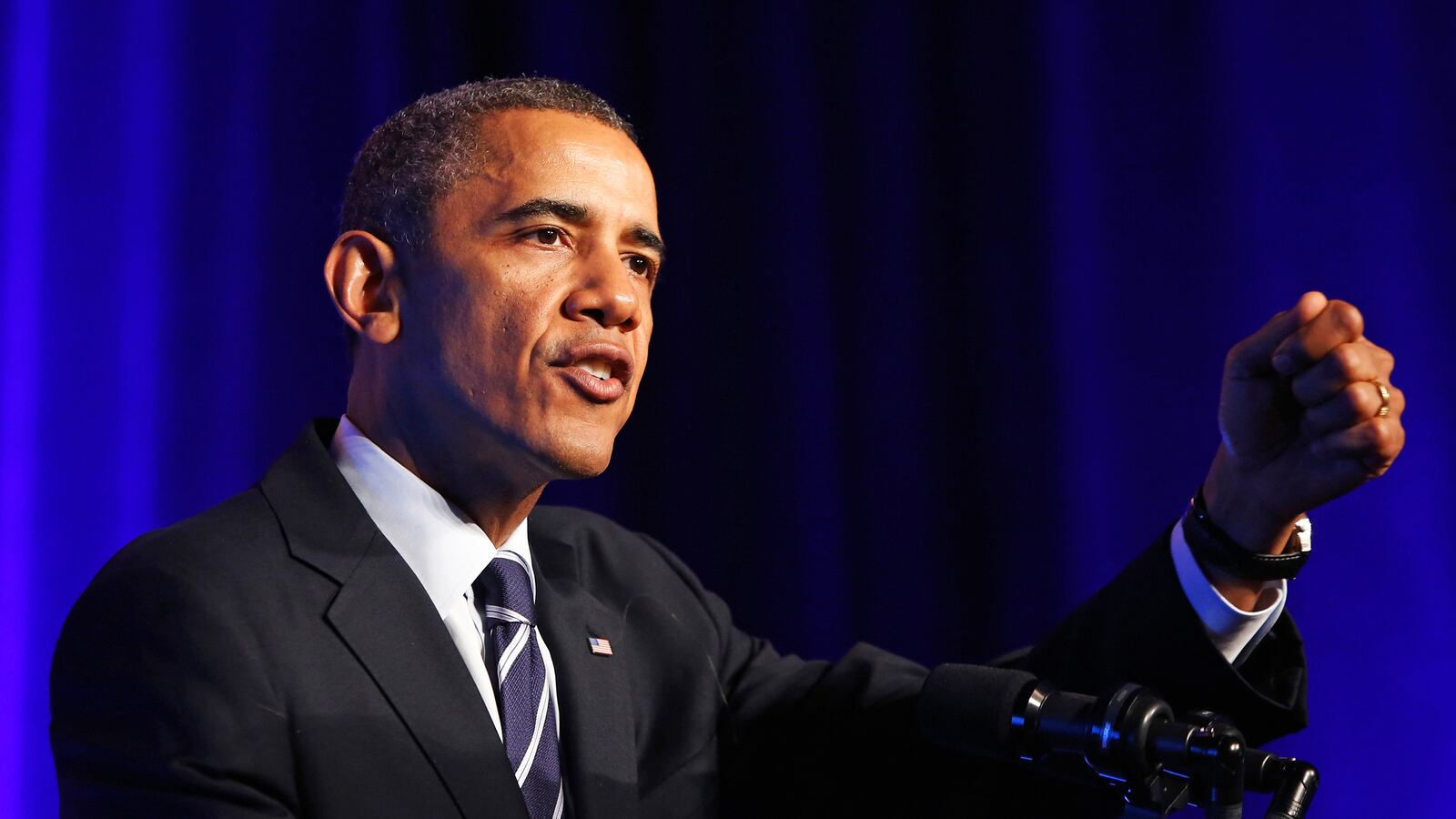
On its own, President Obama’s decision to commute sentences for eight inmates–each convicted of crack cocaine offenses—is a small change to the status quo. Yes, several inmates were serving for life—a result of wildly disproportionate drug sentencing—but none of this does anything for the thousands of prisoners languishing in federal prisons for similar crimes.
Still, these baby steps are more significant than they look. As the New York Times notes, “It was the first time retroactive relief was provided to a group of inmates who most likely would have received significantly shorter terms if they had been sentenced under current drug laws, sentencing rules and charging policies.” What’s more, for a president who has made little use of his power to forgive or reduce sentences—at this point in his presidency, George W. Bush had pardoned or given clemency to 70 people, compared to Obama’s 40—it’s symbolically potent that he chose people imprisoned for drug crimes.
Indeed, it’s of a piece with several more substantive moves, including a 2010 law that reduced the crack/cocaine sentencing disparity, and a move—made earlier this year—to reduce the number of five to ten-year sentences that have swelled the federal prison population and done terrible harm to low-income communities. “Although incarceration has a role to play in our justice system, widespread incarceration at the federal, state and local levels is both ineffective and unsustainable,” said Attorney General Eric Holder during a speech announcing the policy this August, “It imposes a significant economic burden—totaling $80 billion in 2010 alone—and it comes with human and moral costs that are impossible to calculate.”
It’s worth noting that criminal justice reform is an area of growing bipartisan consensus. This year, the federal government spent $7.9 billion on prisons, a huge expense that’s leading some conservatives to reconsider their approach to incarceration. Kentucky Senator Rand Paul, for instance, has made sentencing reform a key part of his pitch to African American voters, and has drafted legislation with Senate Judiciary Committee Chairman Pat Leahy to give judges wider leniency on sentencing. “You might think I was talking about Jim Crow laws,” said Paul earlier this year, discussing mandatory minimums, “The war on drugs is disproportionately affecting black males.”
Likewise, Senators Sheldon Whitehouse of Rhode Island and Rob Portman of Ohio have introduced a prison reform bill that would allow inmates to reduce their sentences by completing programs aimed at helping them re-enter society. The goal is to reduce the burden of prison costs while also reducing the recidivism rate.
Again, there’s a lot more to do when it comes to crafting a more sensible approach to drugs and incarceration. But these small steps—from pardons to allowing states to pursue their experiments with drug legalization—are a move in the right direction. And hopefully, as crime continues to decline and loses its political salience, this will push Congress to step up and do something big.






